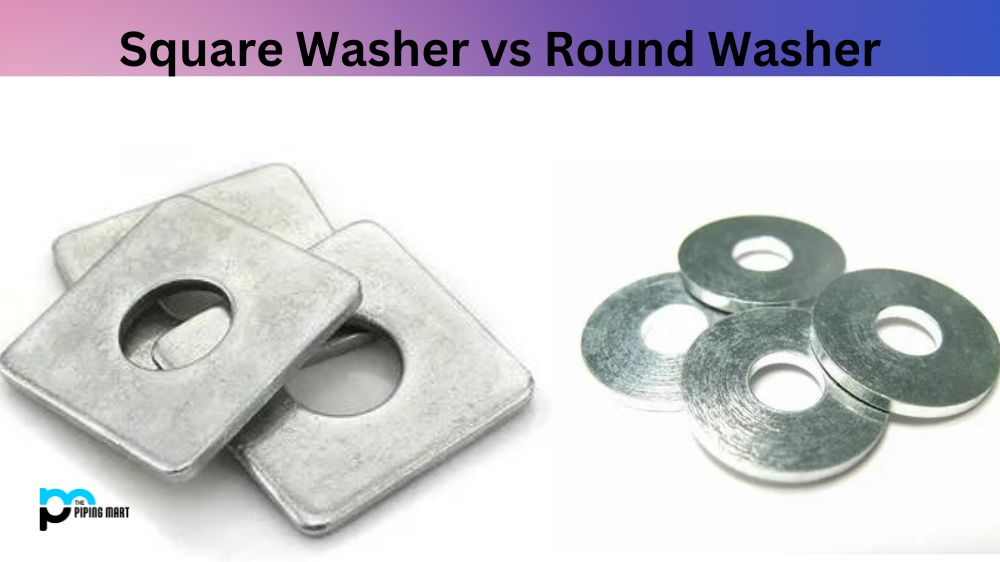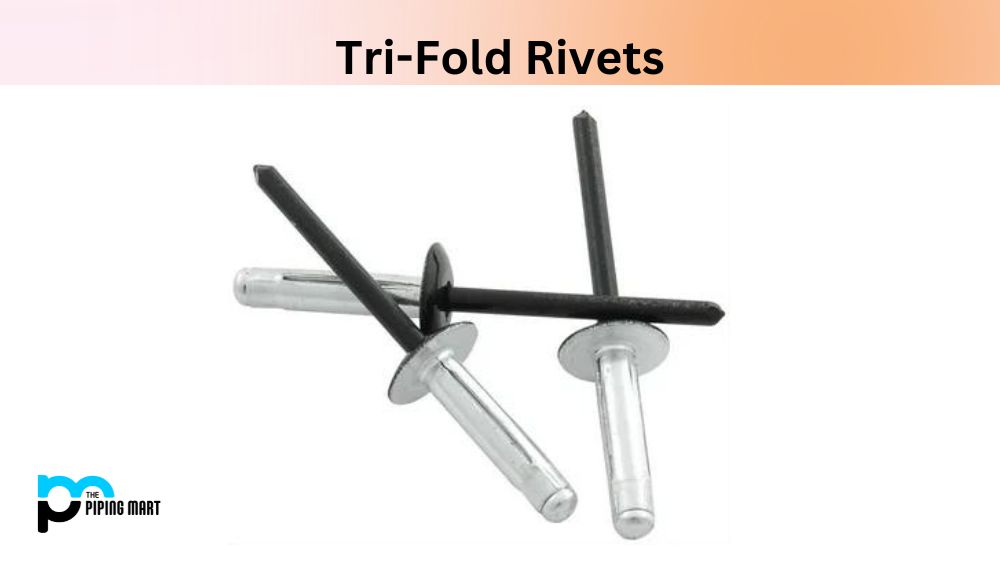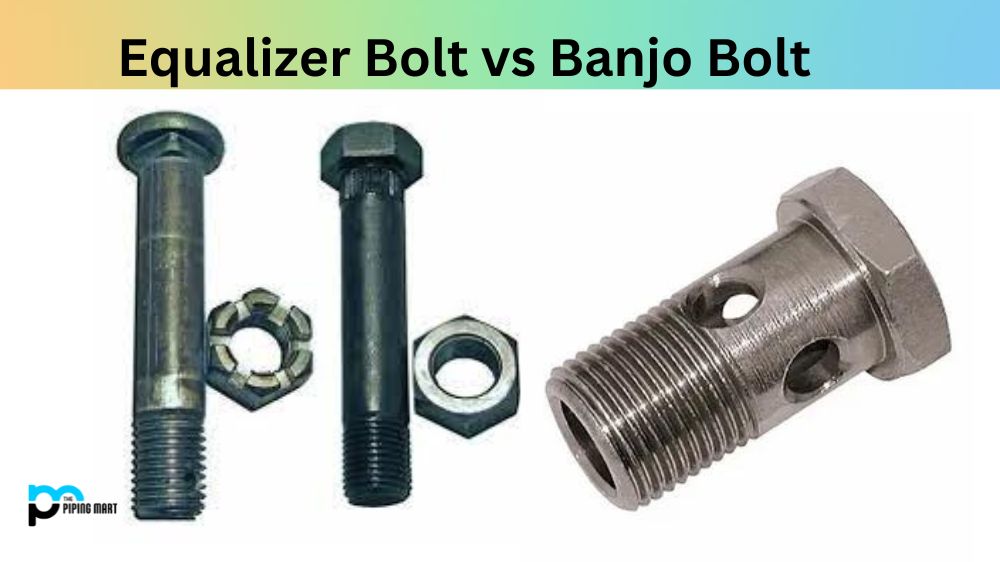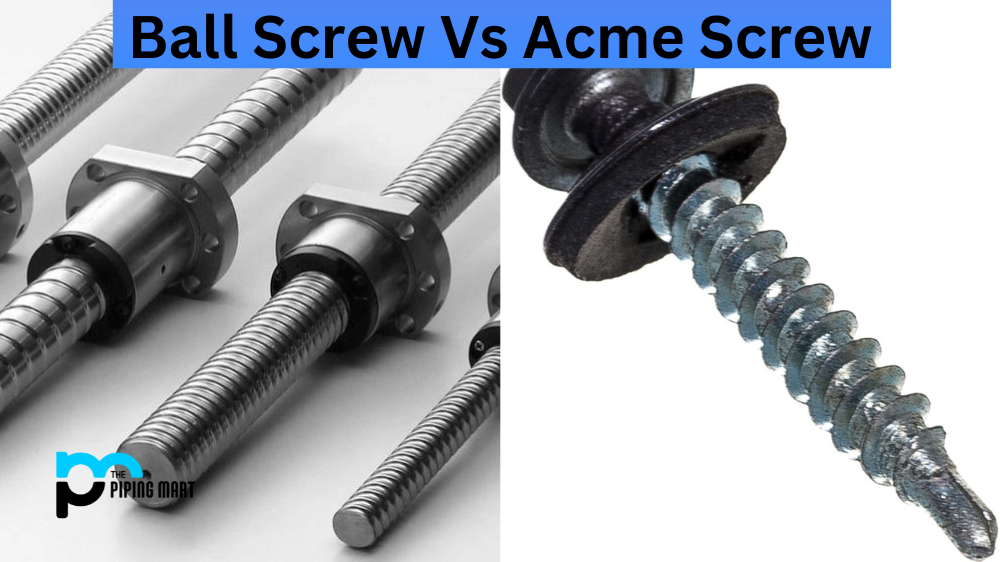When it comes to working on a DIY project or task, you’ll come across the need for different types of washers. Among the many types of fasteners, two of the most commonly used washers are the square and round washers. While they may seem similar in terms of use, some differences set them apart. In this blog post, we’ll go through the differences between square washers and round washers and which one you should use.
What is Square Washer?
A square washer is a flat disc-shaped mechanical component with a central hole and four sides that protrude outwardly from the hole. Often made of metal such as steel, brass, aluminium, or stainless steel; square washers are used to distribute the load of a threaded fastener such as a screw or nut. Additionally, they can be used to reduce vibration and noise created by machines that use bolts for structural integrity. Besides being used in industrial applications, they are often seen in household plumbing fixtures. With their many uses and low cost when purchased in bulk from hardware stores, square washers are essential to many projects requiring structural support and stability.
What is Round Washer?
A round washer is a flat, thin disk with an outer diameter larger than its inner diameter. It is commonly used in various engineering and manufacturing applications to spread out the load of any component or fastener it uses. Round washers are usually made from steel or stainless steel for strength and durability. Depending on application requirements, they can also be manufactured in other materials, such as rubber or plastic. Round Washers are key components to many assembly operations, providing support for misaligned holes, reducing vibration, and distributing fastener loads better than traditional flat washers.
Difference Between Square Washer and Round Washer
Shape
The most obvious difference between square washers and round washers is their shape. Square washers have a square shape and have flat surfaces on all four sides. They are typically used with square bolts or where the fastening point requires a wider surface area. On the other hand, round washers are circular and have a curved surface all around. They are the most commonly used type of washer and can be used with most bolts and nuts.
Load Distribution
The shape of a washer affects how it distributes a load, which is another difference between square washers and round washers. Square washers distribute the load evenly on all four sides of the washer, evenly distributing the force. Round washers, however, can tend to concentrate the force at two points across the curved surface. To mitigate this issue, some round washers have a small, flat surface, making them more similar in their load distribution to square washers.
Function
Square washers and round washers serve different functions in terms of fastening. Square washers are preferred when a wider surface area is required, like in applications requiring a larger bolt or nut grip. Round washers, on the other hand, are preferred in applications where the amount of surface area used to spread the load doesn’t matter much.
Material
Another difference between square and round washers is their manufactured material. They can be made from the same material, but square washers are typically made from harder materials because of the higher load-bearing capacity. In contrast, round washers are often made from softer materials like plastic or rubber.
Cost
Finally, the cost difference between square and round washers is often negligible. The cost difference is due to the size, material, and quality of the washers rather than the shape of the washer.
Conclusion:
Now that you know the difference between square and round washers, which should you use? The answer depends on the application. Typically, square washers are used in applications requiring a wider surface area, while round washers are used in applications requiring lesser surface areas. However, both types of washers can be used interchangeably for most jobs. However, you’ll need to consider factors like the size, material, and even quality of the washer when choosing the right one for your DIY project. Remember that the right washer can make all the difference in the strength and durability of your DIY project.

A passionate metal industry expert and blogger. With over 5 years of experience in the field, Palak brings a wealth of knowledge and insight to her writing. Whether discussing the latest trends in the metal industry or sharing tips, she is dedicated to helping others succeed in the metal industry.




